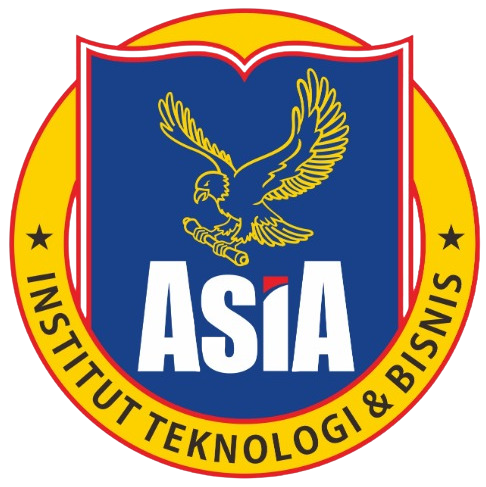EMPLOYEE LOYALTY THROUGH THE ROLE OF JOB SATISFACTION AS A MEDIATOR: LEADER MEMBER EXCHANGE AND WORK LIFE BALANCE AT PT. BATANG HARI BARISAN
DOI:
https://doi.org/10.32815/jibeka.v18i3.2135Keywords:
Employee Loyalty, Leader Member Exchange, Work Life Balance, Job SatisfactionArticle Metrics
Abstract
This research investigates the role of job satisfaction as a mediator in the impact of leader member exchange and work-life balance on employee loyalty at PT Batang Hari Barisan. Data were collected through surveys and questionnaires distributed to a sample of 74 respondents. Path analysis was used as the analysis method, with SmartPLS used for statistical processing. The findings show that leader member exchange and work-life balance significantly influence job satisfaction. Furthermore, leader member exchange has a significant influence on employee loyalty, while work-life balance has no direct impact on employee loyalty. Job satisfaction was found to significantly influence employee loyalty. In addition, leader member exchange impacts employee loyalty indirectly through the mediation of job satisfaction, whereas job satisfaction does not mediate the relationship between work-life balance and employee loyalty.
Downloads
References
Alie, J., Richset Riwukore, J., Smarthene, G., & Hawai, R. (2022). Enrichment: Journal of Management is Licensed under a Creative Commons Attribution-NonCommercial 4.0 International License (CC BY-NC 4.0) Enrichment: Journal of Management Contribution of Leadership Style, Competence, and Motivation to Employee Performanc. Enrichment: Journal of Management, 12(2), 2452–2464.
Budiasih, Y., Hartanto, C. F. B., Ha, T. M., Nguyen, P. T., & Usanti, T. P. (2020). The mediating impact of perceived organisational politics on the relationship between leadership styles and job satisfaction. International Journal of Innovation, Creativity and Change, 10(11), 478–495.
Farid, R. (2022). Analisis Anteseden Kepuasan Kerja Tenaga Kesehatan di Kota Batam dalam menghadapi Pandemi Covid-19. Sang Pencerah: Jurnal Ilmiah Universitas Muhammadiyah Buton, 8(2), 458–476. https://doi.org/10.35326/pencerah.v8i2.2224
Hair, J., Black, W., C., Babin, B. j., & Anderson, R. E. (2010). Multivariate Data Analysis. Seventh Edition. Pretince Hall.
Hajiali, I., Fara Kessi, A. M., Budiandriani, B., Prihatin, E., Sufri, M. M., & Sudirman, A. (2022). Determination of Work Motivation, Leadership Style, Employee Competence on Job Satisfaction and Employee Performance. Golden Ratio of Human Resource Management, 2(1), 57–69. https://doi.org/10.52970/grhrm.v2i1.160
Hamid, E. S., & Rowi., B. (2003). MembangunProfesional Muhammadiyah. LPTPMuhammadiyah Dan UAD Press.
Imam Ghozali. (2016). Desain Penelitian Kuantitatif Dan Kualitatif : Untuk Akuntansi , Bisnis, Dan Ilmu Sosial Lainnya. Yoga Pratama.
Kalambayi, J. L., Onojaefe, D. P., Kasse, S. N., & Tengeh, R. K. (2021). The influence of leadership styles on employee performance in construction firms. EUREKA: Social and Humanities, 5, 34–48. https://doi.org/10.21303/2504-5571.2021.002037
Lasiny, D. A., Astuti, E. S., & Utami, H. N. (2015). THE EFFECT OF TRANSFORMATIONAL LEADERSHIP AND WORK MOTIVATION ON EMPLOYEE PERFORMANCE WITH JOB SATISFACTION AS A MEDIATION VARIABLE. 2015–2018.
M. Khan, M., & Jabbar, M. (2013). Determinants of Employees Performance in Corporate Sector: Case of an Emerging Market. Business and Management Research, 2(3), 24–32. https://doi.org/10.5430/bmr.v2n3p25
Maryani, Y., Entang, M., & Tukiran, M. (2021). The Relationship between Work Motivation, Work Discipline and Employee Performance at the Regional Secretariat of Bogor City. International Journal of Social and Management Studies (Ijosmas), 2(2), 1–16. https://www.ijosmas.org
Mon, M. D., & Jennifer. (2022). Analisis Pengaruh Kecerdasan Emosional, Motivasi dan Keadilan Organisasi terhadap Kinerja Karyawan dengan Organizational Citizenship sebagai Variabel Mediasi. Jurnal Mirai Manajemen Published By STIE Amkop Makassar, 7(1), 113–126.
Nasution, M. I., & Priangkatara, N. (2022). Work Discipline and Work Motivation on Employee Performance. International Journal of Economics, Social Science, Entrepreneurship and Technology (IJESET), 1(1), 50–64. https://doi.org/10.55983/ijeset.v1i1.27
Nugraha, D. A., Nadeak, B., Martini, N., & Suyaman, D. J. (2022). Pengaruh Pengembangan Karir Dan Kompetensi Terhadap Kepuasan Kerja Yang Berdampak Pada Kinerja Pegawai Negeri Sipil Dinas Kelautan Dan Perikanan Provinsi Jawa Barat. At-Tadbir : Jurnal Ilmiah Manajemen, 6(1), 81. https://doi.org/10.31602/atd.v6i1.5886
Parashakti, R. D., Fahlevi, M., Ekhsan, M., & Hadinata, A. (2020). The Influence of Work Environment and Competence on Motivation and Its Impact on Employee Performance in Health Sector. 135(Aicmbs 2019), 259–267. https://doi.org/10.2991/aebmr.k.200410.040
Rahmawani, R., & Syahrial, H. (2021). Pengaruh Motivasi Kerja dan Kepuasan Kerja terhadap Kinerja Karyawan Perusahaan Terbatas Sinarmas Medan Sumatera Utara. Jurnal Ilmiah Manajemen Dan Bisnis (JIMBI), 2(1), 27–40. https://doi.org/10.31289/jimbi.v2i1.462
Sembiring, H. F. B., & Marbun, P. (2021). Pengaruh Gaya Kepemimpinan dan Disiplin Kerja Terhadap Kinerja Karyawan Pada Perseroan Terbatas Perusahaan Listrik Negara (Persero) Pembangkitan Sumatera Bagian Utara. Jurnal Ilmiah Manajemen Dan Bisnis (JIMBI), 2(2), 167–175. https://doi.org/10.31289/jimbi.v2i1.459
Sinambela, E. A. (2020). PENGARUH PENDIDIKAN, KOMPETENSI DAN PENGALAMAN KERJA TERHADAP KEPUASAN KERJAKARYAWAN. 3(2), 277–285.
Syamsir. (2020). Competence, Job Satisfaction, Work Motivation, and Job Performance of the Village (“Nagari”) Masters in Managing E-Village Finance. International Journal of Advanced Science and Technology, 29(08), 1337–1350.
Tampubolon, M. (2021). Pengaruh Kompensasi, Iklim Kerja, dan Kepemimpinan terhadap Kepuasan Kerja dan Kinerja Karyawan. Jurnal Akutansi, Manajemen, Ekonomi, 2(1), 90–105.
Wokas, N. G. C., Dotulong, L. O. H., & Saerang, R. T. (2022). Pengaruh Gaya Kepemimpinan, Keterlibatan Kerja Dan Lingkungan Kerja Terhadap Kinerja Karyawan Pt. Pln Kawangkoan. Jurnal EMBA : Jurnal Riset Ekonomi, Manajemen, Bisnis Dan Akuntansi, 10(3), 56. https://doi.org/10.35794/emba.v10i3.40890
Downloads
Published
How to Cite
Issue
Section
License
Copyright (c) 2024 Siti Rizki Mulyani, Fitri Yeni, Mai Yuliza

This work is licensed under a Creative Commons Attribution-ShareAlike 4.0 International License.
Happy reading. Do not forget to cite. Thank you.








